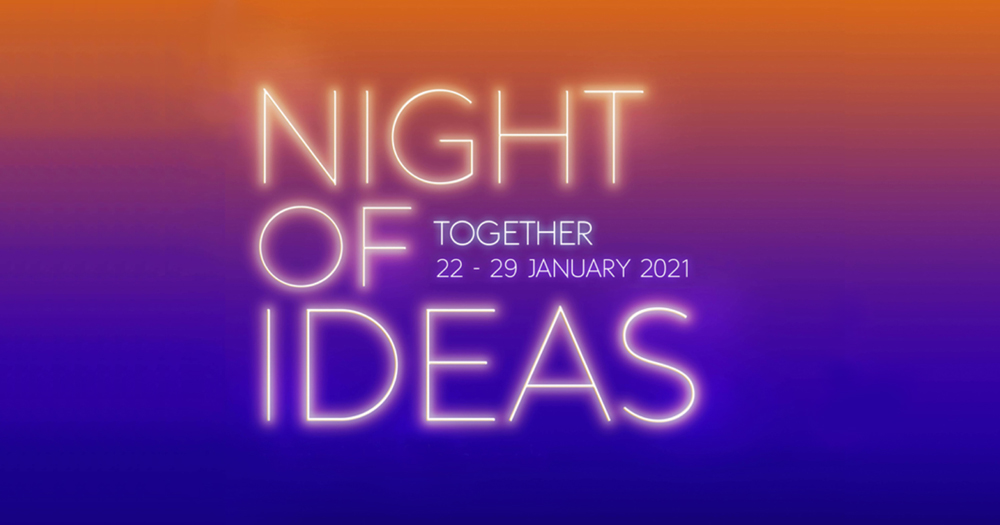«The corona pandemic has isolated most individuals in their private realm»

Manuel Arias Maldonado is Associate Professor in Political Science at the University of Malaga (Spain). Maldonado has been a Fulbright scholar at the University of Berkeley and a visiting researcher in Munich and New York.
Maldonado has published a book in Spain about the sentimentalisation of politics and a number of papers on the digitisation of social life. His latest books deal with the Anthropocene and the Covid-19 pandemic.
Maldonado takes part in this year’s edition of Night of Ideas, at the debate Lonely Together with Fay Bound Alberti, author of A Biography of Loneliness & Cultural Historian, from the University of York, and Clémentine Lalande, CEO of Once online dating app.
This year you take part in the In the Night of Ideas, what does it represent to you?
It is an exciting opportunity to share my thoughs on the topic with the rest of the participants and the public. Tellingly, we will do it thanks to the same technology that will be subject to discussion. On the other hand, the very existence of a Night of Ideas is a tribute to the key role that ideas play in the human experience -as something that invites us to see the world in particular ways and incites us to change it.
The topic of your debate is Lonely Together. What are your thoughts on it?
Human beings have been «lonely together» for centuries. Even before the invention of the print, some cultuvated people wrote to each others letters that crossed continents, thus helping them to alleviate their loneliness or isolation. As new communication technologies emerged, from the telephone to the radio, togetherness could comprise a greater number of people. Yet mass communication did not allow individuals to answer back – we just passively received messages from the few who produced them. Digital technologies are different: individual people can now connect to each other on a regular basis in different ways, ranging from chats to video apps. Thus we can now create our own networks. The public space is thus fragmented, while our private lives acquire a multi-faceted quality. Does this increase loneliness? I am not sure. People still need the direct contact of others and it seems to me that digital technologies just add a new layer of sociality to our everyday lives. For instance, we can be in touch more easily with those who live far from us — be them family or friends. And for those who are shy, writing can be easier than an in-person encounter. Social networks have problems of their own and they must be discussed, but I would argue against the idea that greater connectivity is a bad thing for the individual. Loneliness and togetherness stand in a difficult relation and this relates in turn to the tension between individuality and sociality in human beings. Digital technologies can disrupt such relation, but they cannot put an end to that tension.
How do you feel about the use of digital networks during the current lockdown in the UK and other parts of the world?
The corona pandemic has isolated most individuals in their private realm and this in turn has shown the communicative potential of digital technologies. It may be argued that governments might have never been able to impose such strict lockdowns across the world without the existence of digital networks, which have been very beneficial – they have alleviated loneliness, facilitated the exchange of information, and provided entertainment. In sum, they have been a substitute for ordinary life. Naturally, they have also allowed the continuation of economic activity in many sectors, thus preventing a greater damage to virus-battered societies.
Can we be emotionally connected in the digital world?
Indeed. Emotional connection does not require in-person communication, as the entire history of the novel – not to mention the radio or television – comes to show. There are all kind of experiences in the digital world: some are personally affecting, some are not. On the other hand, it would be necessary to define what do we mean by «emotional connection». To which emotions are we refering to? Social networks can often elicit resentment, animosity or envy (let us think of the effect that the glittering images of the life of others as staged in Instagram usually has on the observers). I am afraid that this should also count as a kind of emotional connection. Yet if we reserve the term for a positive connection, associated to solidarity or love, well, we can feel that connection as well. Needless to say, we may feel that something is missing – that the presence of others provide something to communication that is unique and valuable. But this is no reason to reject the particular type of affective experiencies that digital networks can provide.



